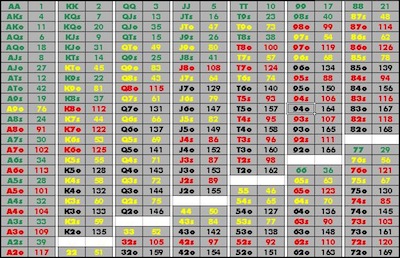Learn Omaha Poker

Omaha Poker Omaha poker is an exciting game derived from Texas Hold'em. Each player is dealt four private cards (‘hole cards’) which belong only to that player. Five community cards are dealt face-up on. Omaha is like Texas Hold'em. Each player receives four cards dealt face down. These cards are also called pocket cards. Like in Texas Hold'em, five cards are dealt face up on the table. The players can. Learn to play pot limit omaha plo Starting Out Like other variations of poker, one player is designated the dealer at the start of the game, and the deal rotates clockwise after each hand.

Learn To Play Omaha Poker
Beginner Articles
PokerStars offers Omaha poker games and tournaments for players of all skill levels - learn the Omaha poker rules and start playing today! In partnership with. If you or someone you know has a gambling. Basic Pot Limit Omaha Strategy. If you’re just starting out, you’ll want to have a few basic guidelines to anchor your play. In a game where the complexity of pre-flop and post-flop combinations (both yours.
How is Pot Limit Omaha Different From No Limit Hold’Em

While NLH and PLO have some similarities, there are several elements that cause the games to play very differently. The strength of made hands and draws are evaluated very differently in PLO. Equity advantages are also much narrower than in NLH.
The Basic Rules of Pot Limit Omaha (PLO)
If you are completely new to PLO, read this quick primer on the rules of the game. There are some key differences compared to NLH (e.g. you have to play exactly 2 cards from your hand), so you’ll want to be up to speed.
How To Calculate The Pot In PLO
Omaha Poker Rules
While you can always announce “Pot” and have the dealer figure it out, it’s important to know how to determine “pot” to calculate fold equity and value. You will also want to know the max potential bet size if you are re-raised.
Learn To Play Omaha Poker
Basic Pot Limit Omaha Strategy
Omaha Poker Strategy
If you’re just starting out, you’ll want to have a few basic guidelines to anchor your play. In a game where the complexity of pre-flop and post-flop combinations (both yours and opponents) is increased substantially, having a solid starting strategy is a key to success.